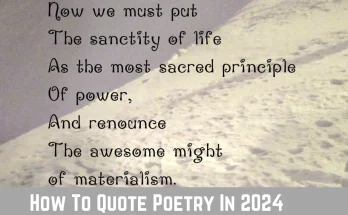Wondering what does the title of Paradise Lost refer to? In this comprehensive article, we delve into the deep meaning and significance behind the title, exploring its relevance to John Milton’s iconic epic poem.
Read on to uncover the secrets of Paradise Lost and gain a deeper understanding of its title. There is also a description of Hell in Paradise Lost.
What Does the Title of Paradise Lost Refer To? Exploring the Epic Poem’s Enigmatic Name
The Fall of Man and the Loss of Paradise
Paradise Lost revolves around the biblical story of Adam and Eve, their temptation by Satan, and their subsequent expulsion from Eden.
The title directly alludes to the momentous event of mankind’s fall from grace, resulting in the loss of the perfect paradise originally bestowed upon them by God.
The Concept of Paradise
Milton’s portrayal of paradise in the poem goes beyond the physical realm. It represents a state of perfect harmony, innocence, and communion with God.
The title emphasizes the magnitude of this loss and the consequential impact it has on humanity.
The Loss of Perfection and Innocence
Beyond the literal interpretation, the title also alludes to the loss of perfection and innocence experienced by humanity after their transgression.
The word “paradise” signifies the prelapsarian state of bliss and harmony, which was marred by disobedience and the introduction of sin into the world.
The Loss of Divine Favor and Grace
Additionally, “Paradise Lost” highlights the loss of God’s favor and the severance of the intimate relationship between humanity and the divine.
It explores the consequences of defying God’s commandments and the subsequent estrangement from divine grace.
Exploring the Theological Implications
Milton’s title resonates with profound theological implications, delving into themes of free will, redemption, and theodicy.
By examining the fall of humanity and the subsequent plan of redemption, the poem wrestles with theological questions surrounding the nature of evil, the role of temptation, and the ultimate purpose of human existence.
The Power of Literary Irony
In using the title “Paradise Lost,” Milton employs a masterstroke of literary irony. While the surface meaning denotes loss and tragedy, the poem ultimately conveys a message of hope, resilience, and the potential for redemption.
The title, therefore, acts as a paradoxical invitation for readers to explore the transformative power of adversity.
Interpreting the Title: A Multitude of Perspectives
As with any amazing work of literature, the title “Paradise Lost” offers various explanations, ensuring its lasting relevance across generations.
Scholars and readers have come up to it from various angles, including philosophical, theological, moral, and psychological viewpoints. Each elucidation contributes to the rich tapestry of meaning within the poem.
Frequently Asked Questions
Milton chose the title to capture the essence of his epic, focusing on the central event of mankind’s fall from grace and the subsequent consequences.
The title holds an element of irony as the loss of paradise leads to the gain of wisdom and knowledge, but it predominantly signifies the tragic consequences of human disobedience.
Yes, the title reflects Milton’s deeply religious worldview and highlights the spiritual and moral implications of the fall of man.
Yes, the title allows for various interpretations, ranging from the literal expulsion from Eden to metaphorical reflections on the human condition and the pursuit of paradise.
The title sets the stage for the exploration of profound themes, creating a sense of anticipation and emphasizing the significant consequences of the loss of paradise.



